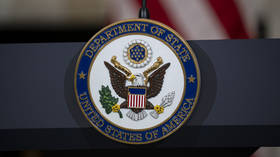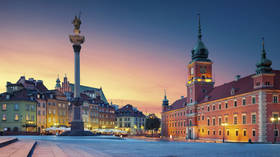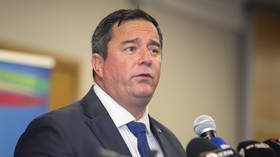‘Turkey likely knew about Syrian rebel siege of Christian town’
It would be impossible for Turkey not to be informed of Syrian rebels’ siege of the Christian majority town of Kessab, international law Professor Daoud Khairallah form Georgetown University told RT
Reportedly, on March 21, extremist groups affiliated with Al-Qaeda crossed into Syria from Turkey and seized the predominantly Christian town after clashes with Syrian government troops and local self-defense squads. The attack caused hundreds of ethnic Armenians to flee and created an international outcry, with Armenia accusing Turkey of supporting extremists.
Kessab – located in Syria’s Latakia province, near the border with Turkey – fell to rebels, sparking a fierce battle in the media as conflicting reports are coming in about the events in the town which is home to over 2,000 ethnic Armenians.
RT:Armenians are sure Turkey was directly involved into the assault. Why would Ankara be interested in one tiny Armenian village?
Daoud Khairallah: Ankara has been supporting the jihadi fundamentalists in this war against Syrian regime from the very beginning. It has opened its borders for the fundamentalists coming from all over the world. So to say that now what they did in Kessab is not much different from what it has been doing all along. Now it is very difficult to think that this has happened against Kessab - overwhelmingly majority Armenian - without the knowledge of the Turkish government. It is a border town and it knows that Armenians had been there. And the Armenians had been traumatized by the Turks - there is a long history, probably it was the first genocide in the 20th century, the genocide against the Armenians, as historians say.
Turkey has a long history of helping the armed people coming from all over the world against the Syrian regime and facilitating their entrance into Syria, training them. For Turkey to say we didn’t know or we couldn’t stop it is a little bit ridiculous.
RT:A recent leak suggested Turkey could be planning to stage a provocation inside Syria, and later put the blame on Assad. What was the final goal for Turkey?
DK: Turkey has decided from the beginning to interfere in the internal affairs of Syria and change the Syrian regime. And Mr. Erdogan and his government have never changed their opinion on this. All that [is] in violation of international law - interfering in the internal affairs of a different country is against the law. And the only authority that can tell whether Mr. Assad or his government is legitimate or not is the Syrian people. The Turkish government has taken a position from the very beginning of events in Syria that is not justifiable in international law, international practice.
RT:How will the international community react?
DK: I don’t think we can expect much from the international community. The international community has been divided; and the international community has disregarded international law from the very beginning with respect to the Syrian crisis. Some countries have let their borders open. They have helped outsiders come into Syria without any justification internationally.
If the international community would act, it would act through the Security Council. We know where the US stands: it has a veto power. And I doubt that the United Nations, and the Security Council in particular, is acting in conformity with international law and this crisis from the very beginning.
The statements, views and opinions expressed in this column are solely those of the author and do not necessarily represent those of RT.












